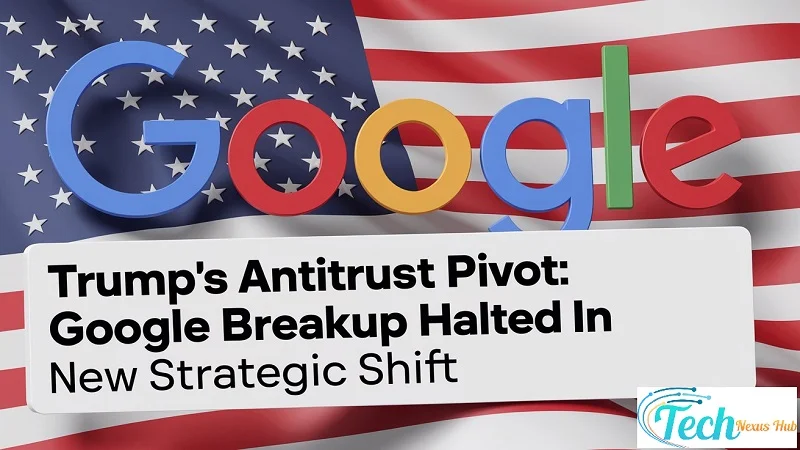Anticipate that a Donald Trump administration will take the U.S. government in the opposite direction on antitrust matters that has been seen under the Biden presidency. This could involve even suspending anti-trust proceedings against Google, despite the company’s continued monopoly over Internet search.
Trump’s Antitrust U-Turn Google Breakup on Hold, But Big Tech Scrutiny Continues
They opine that although Trump is likely to reduce the heat on the Big Tech companies, he is likely to further prosecute antitrust measures begun during his first term. But there’s one significant unresolved issue for him—breaking up large players such as Google.
At a rally in Chicago in December 2020, Trump asked whether breaking up Google would hurt it. While he said that a breakup could be avoided, he pointed out that another approach more fair to BSkyB was possible.
The federal government has two massive antitrust matters against Google, one related to its search business and the other relating to advertising. However, other large players and technological corporations are involved in other antitrust cases each for themselves – Apple, Meta, and Amazon.
This change of course could define the future of technology regulation in the United States while putting at risk the innovative future the country cultivated for decades. While there will be more cases against Big Tech, new goals may shift to fairness rather than the total destruction of the firms.
Google's Search Battle DOJ Remedies, Trump’s Influence, and the Future of Antitrust Enforcement
The DOJ has presented various remedies in its antitrust case against Google for search as part of the remedies has insisted that Google must lose the Chrome web browser. These steps are in a bid to counter controversial Google monopoly on search business and its default occupancy of different gadgets including iPhones.
However, it remains unclear how successful these proposed remedies will be in achieving those goals, as a trial of such remedies will not occur until April 2025, with a decision expected in August. Because of this relatively elongated timeframe, there is the possibility of regime change, in terms of a new administration or the DOJ’s perspective on cannabis to change course at any given time.
William Kovacic, a professor at the George Washington University’s law school, said that former President Donald Trump could also determine how the DOJ proceeds with these cases. Kovacic said that Trump would have a lot of say about the strategy of the DOJ during the remedies phase of the case.
His impact could also touch on further regulatory policies that are in relation to merger cases. According to the attorneys, the Biden administration may not be as favorable to the merging companies settling with them as the Trump administration might be.
Biden administered regulators have been less inclined to resolve antitrust matters with companies and increase enforcement. This is because if Trump goes back to the earlier approach as he has done concerning the bans on foreign soil acquisitions the door could open for mergers that might have been stopped or slowed down under the current administration.
Shifting Tides How Trump Could Reshape Antitrust and Merger Policies
The FTC and DOJ under a possible Trump administration are likely to do away with merger review guidelines brought about by Biden. International mergers and acquisitions attorney Jon Dubrow, a partner at McDermott Will & Emery, echoed this point of view and Wall Street sentiments in noting that the 2023 guidelines had been widely viewed as downright hostile to M&A.
The guidelines announced by the Biden administration were formulated in a bid to reign in corporate consolidation but pundits say that it has only dampened business development and competitive forces. If Trump comes back to presidency, such policies may be subject to rollback indicating potential formation of a more restrictive environment on mergers.
Another large modification could be done by American FTC through eliminating noncompete clauses under which 30 million of the USA workers are prohibited from working in similar industries after leaving their employers. Should the FTC fail to vote to defend this rule, it will be at risk of legal challenges: the surety of the rule in the long run is at risk from such entities as the U.S Chamber of Commerce.
The future of these initiatives, therefore, hinges on Trump nominating a Republican majority to the bipartisan FTC. If realized such a shift could see many of the aggressive policies that have been proposed by FTC Chair Lina Khan and her supporters dismantled.
Even in these scenarios, Trump will not greatly decrease antitrust enforcement in general. However, merger enforcement actions during his first term were right on par with what had been seen under Biden administration, which based on analysis by the Sheppard Mullin law firm meant that the split was not as aggressive with corporate oversight as some thought it might be .


